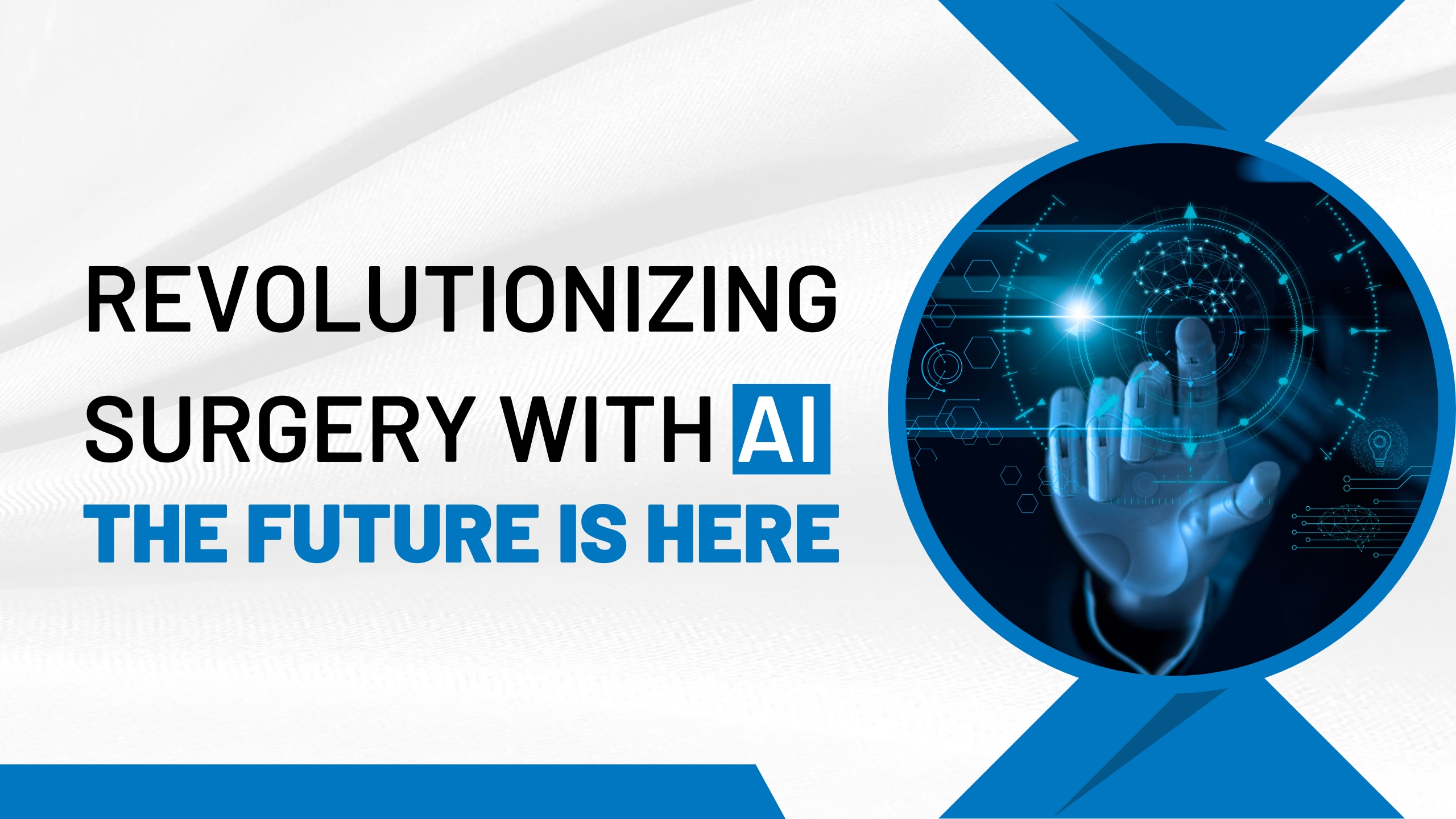Revolutionizing Surgery with AI: The Future is Here
Written By: Dr. Abhishek Thapa

Artificial Intelligence (AI) is reshaping the world in a rapid way, including the medical field. Looking at the power of AI, it can make procedures safer, more precise, and highly efficient. From preoperative planning to post-surgical recovery, AI is no longer just an advanced tool instead it has the power to become essential partner for surgeons. AI has the capacity to handle a vast volume of data, aid in making decisions swiftly, and assist in improving surgical procedures. It is leading us towards a new dawn/era in healthcare.
AI in Surgery: From Start to Finish

AI can be present at every stage of a surgical procedure, enhancing care from pre-op to recovery. Here’s how:
- Smarter Preoperative Planning
Even before a patient enters the operating room, AI helps surgeons prepare by analyzing medical histories, image scans, and potential risks. Advanced AI models and algorithms can predict complications, allowing doctors to adjust their strategy. AI-generated 3D anatomical models also provide a clear view of the operation area, and surgeons can map out each stage of the procedure with accuracy.
- AI-Powered Assistance During Surgery
In surgery, AI plays a crucial role in ensuring everything is done precisely and safely. Robotic surgical systems use AI to provide real-time assistance, improve precision, and minimize risks. AI can also review images taken during surgery, highlighting key structures and even tracking tumors in real-time. This results in faster procedures with fewer complications than the traditional method.
- Personalized Postoperative Care
After surgery, AI-driven systems also keep monitoring the patient to identify early warning signs for complications like infection or organ issues. Wearable sensors track vital health metrics, and AI platforms generate individualized recovery plans. Virtual reality (VR) therapy has been used to manage pain and support rehabilitation which has shown a promising result.
AI in Surgical Education: Training the Next Generation
Not only is AI helping with surgeries, but it is also changing the process of surgical training for all trainees. Traditional surgical training depends a lot on hands-on experience, but AI is transforming that with:
- AI-driven simulations with instant feedback and surgical skills evaluation.
- Performance analysis toolthat tracks a trainee’s accuracy, effectiveness, and decision-making skills.
- Virtual reality training will allow future surgeons to practice complicated procedures in a risk-free setting.
AI training techniques assist surgeons in acquiring the skills they require faster and better, which enhances patient care. This is quite amazing.
The Challenges: Ethical and Practical Considerations
AI offers tremendous advantages for surgery, yet it also has issues that need to be addressed:
- Moral concerns: Who do we blame when something goes wrong with AI-supported surgery? Accountability is essential here.
- AI model bias: AI models need to learn from diverse patient data to prevent biases that may result in variation in treatment.
- Regulatory and safety controls: AI technologies should be rigorously tested and approved to ensure they are effective and safe.
- Accessibility and affordability: Advanced AI tools may be expensive, making it essential to find ways to make them accessible to all.
The Future of AI in Surgery: A Collaborative Approach
The use of AI in surgery is only in the beginning stages; the future promises to be even more amazing. AI will continue to improve surgical accuracy, increase patient safety, and offer more innovative training resources for surgeons. However, its success relies on cooperation – surgeons, AI engineers, ethicists, and regulators who need to collaborate for AI to be effectively and responsibly used for better patient outcomes.AI is not here to replace surgeons—it’s here to empower them. With its abilities, we can build a future where operations are safer, recovery is quicker, and health care is more individualized than ever imagined. The future of surgery is here, and AI is at the forefront.
